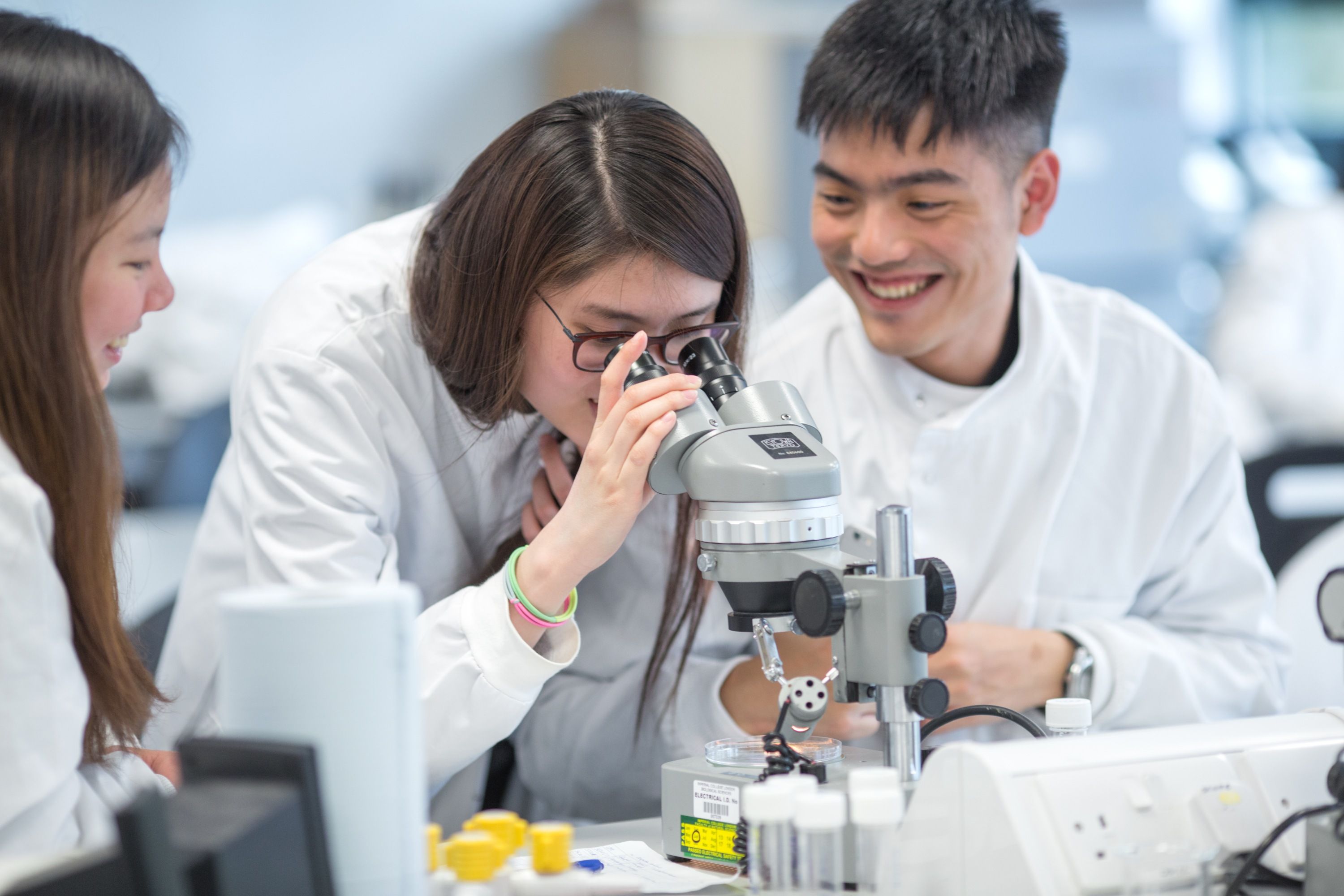
MSc Biochemistry Course Detail, Admission, Syllabus, Colleges
- Science
Notification:

Table of Content
The M.Sc Biochemistry is a two-year postgraduate course that provides enhanced knowledge of biochemical processes occurring in living organisms. It is an intermediary course between biology and chemistry and offers complicated ideas on molecular biology, genetics and biophysics. This is due to current growing job opportunities for biochemical personnel across various fields like health, drug and farming, hence M.Sc Biochemistry graduates are highly demanded. This course teaches students the theoretical understanding and hands-on abilities to conduct research, diagnostics, and applications for sectors that improve human health, environment, and food systems.
The molecular basis of biological processes is a program of study for the M.Sc. (Biochemistry). Students realise how biological molecules work at the cellular level for the development of tissues and organs. The curriculum provides the theoretical perspective of the concepts, laboratory skills- protein chemistry, enzymology molecular biology and immunology. Graduates can work in research labs, clinical trials, and almost any pharmaceutical, biology, or agriculture profession. It stimulates creativity by letting students utilise what they have been taught to tackle challenges in illnesses and biotechnology.
| Course Level | Post Graduate Degree |
| Course Duration | 2 Years |
| Full-Form | Master of Science in Biochemistry |
| Eligibility | 50% marks in a degree course |
| Admission Process | Merit and Entrance Exam Based |
| Course Fee | Up to INR 1 Lakh per annum |
| Average Salary Offered | Up to INR 5 Lakhs yearly |
| Job Positions | Associate engineers, research scientists, professors, Microbiologist, Biotechnologists, Pharmacologists, Lab Technician, Consultant, Bioscience Business Specialist |
| Employment Sectors | Research Centres, Colleges, Universities, Medical equipment manufacturing companies, Pharmaceutical Companies, Hospitals, and Clinics |
| Top Recruiters | Wockhardt Limited, Piramal Healthcare, Biocon, GlaxoSmithKline, Panacea, and other top recruiting companies |
A bachelor's degree in biochemistry, chemistry, biotechnology, or a related field is a prerequisite for the M.Sc. (Biochemistry) program in India. Candidates need organic, molecular and cell biology skills. In addition to the possession of an appropriate degree, there are usually the following requirements for admission:
The M.Sc. (Biochemistry) program in India continues for two years and is further subdivided into four semesters. While summer sessions are not obligatory, some universities provide students with the opportunity to attend additional sessions and fieldwork. The subjects tend to be divided into core subjects, elective subjects, and research subjects:
There is enormous employment opportunity for graduates with an M.Sc. (Biochemistry) in diverse industries where the application of biochemistry and theoretical knowledge in relation to practice is valued.
| University Name | Location | Average Fee |
|---|---|---|
| University of Hyderabad | Hyderabad | INR 28,000 |
| The Oxford College of Science | Bangalore | INR 1 Lakh |
| Fergusson College | Pune | INR 1.64 Lakhs |
| Aligarh Muslim University | Uttar Pradesh | INR 2.68 Lakhs |
| Amity University | Gurgaon | INR 2.09 Lakhs |
| University of Mysore | Mysore | INR 2.42 Lakhs |
| AIIMS | Delhi | INR 2,805 |
| University of Delhi | Delhi | INR 20,000 |
| Jamia Milia Islamia University | Delhi | INR 1.05 Lakhs |
| Maharishi Dayanand University | Rohtak | INR 22,034 |
MSc in Biochemistry is a postgraduate course of 2 years that comprises 4 semesters. The course curriculum comprises subjects related to biotechnology, bioinformatics, immunology, cell biology, and similar.
The semester-wise syllabus of the course is tabled below to give you an idea of the subjects to be taught under the course study. It covers research topics, practical labs, and dissertations too.
| Semester 1 | Semester 2 |
|---|---|
| Enzymology | Biophysical and Biochemical techniques |
| Structure and Function of Biomolecules | Molecular Biology I |
| Bioenergetics and Intermediary Metabolism | Nutritional and Clinical Biochemistry |
| Cell Biology and Physiology | Plant Biochemistry |
| Practical Labs | Practical Labs |
| - | Seminar Session |
| Semester 3 | Semester 4 |
| Basic Biotechnology | Bioinformatics |
| Introductory Microbiology | Stem Cell and Reproduction |
| Molecular Biology II | Biostatistics and Research Documentation |
| Immunology | Practical Labs |
| Practical Labs | Project Reports |
| Seminar Session | - |
The graduates in M. Sc. (Biochemistry) can further go for the Ph.D. in specialised fields to improve their employability. Some of the most chosen courses by postgraduate students include:
Due to strong demand in many businesses, M.Sc. (Biochemistry) graduates can get work in several sectors in India. Other areas of employment concern are:
Salaries for M.Sc. (Biochemistry) graduates in India vary based on the sector and location. Here’s a general breakdown:
Experience and qualifications can also result in increased remuneration and there are numerous strategies to advance in a career, whether in academia or the workplace.
The M.Sc. (Biochemistry) program for students in India helps the students to attain success in the scientific clinical or industries. The knowledge and understanding of the basic concepts of Molecular and cellular biology prepares graduates appropriately to follow and practice in core areas of Studies such as environmental management, drug synthesis and discovery, and health. Given the proven research and future advancements in biochemistry and related subjects, this profession offers numerous prospective job opportunities.
How likely are you to recommend Medicaljagat.com to a friend or a colleague?